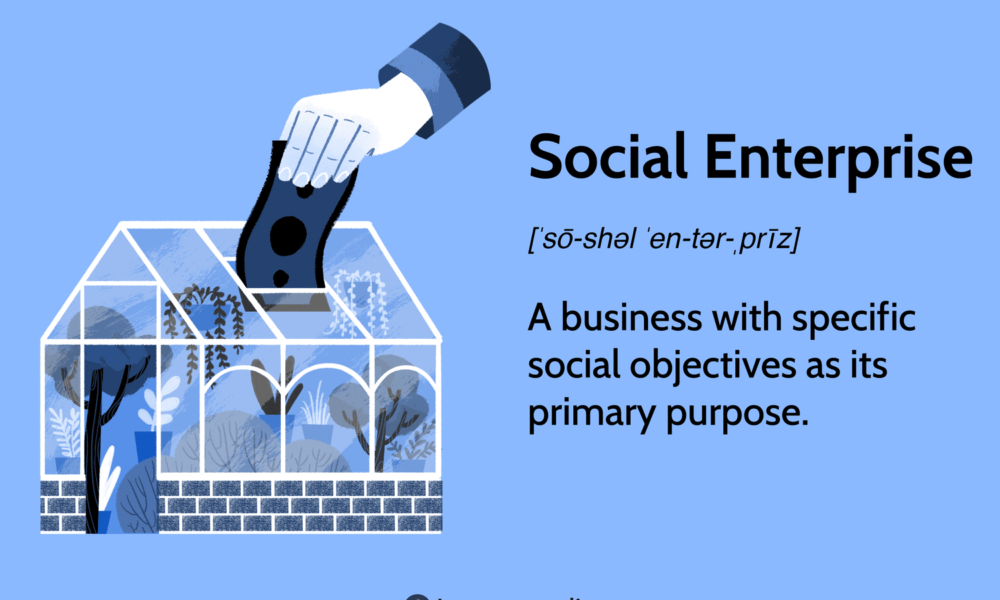For startups and organizations with a social mission, non-dilutive funding can be a vital resource for achieving impact without giving up equity. Social enterprises—those focused on addressing social, environmental, or economic challenges—often face unique funding challenges, as their goals extend beyond profit. Fortunately, there are numerous non-dilutive funding options designed to support socially driven innovation and initiatives.
Understanding Non-Dilutive Funding for Social Enterprises
Non-dilutive funding provides capital without requiring the recipient to give up ownership or equity. This type of funding often comes in the form of grants, prizes, or contract awards. For social enterprises, these funding sources can provide the resources needed to pilot new programs, scale impact, and develop sustainable solutions.
Key Non-Dilutive Funding Sources for Social Enterprises
1. Government Grants and Contracts
Government agencies at the federal, state, and local levels offer funding to support social enterprises working in public health, education, renewable energy, workforce development, and more.
- Examples:
- Department of Health and Human Services (HHS): Grants for health equity and community-based programs.
- Department of Energy (DOE): Funding for clean energy and environmental justice projects.
- National Science Foundation (NSF): SBIR/STTR funding for technology-based solutions with social impact.
2. Philanthropic Grants and Foundations
Many foundations provide non-dilutive funding to support social enterprises working in key issue areas such as poverty alleviation, climate action, and education access.
- Examples:
- Bill & Melinda Gates Foundation: Funding for global health and development initiatives.
- Ford Foundation: Grants supporting social justice and human rights programs.
- Robert Wood Johnson Foundation: Funding focused on health equity.
3. Prize Competitions and Challenges
Innovation challenges and competitions provide significant funding to social enterprises that demonstrate innovative solutions to pressing societal issues.
- Examples:
- XPRIZE Competitions: Awards for groundbreaking technological solutions with social impact.
- MIT Solve: Global challenges focused on solving social and environmental problems.
- Echoing Green Fellowship: Funding and support for social entrepreneurs addressing systemic change.
4. Corporate Social Responsibility (CSR) Programs
Many corporations have grant programs or innovation challenges designed to fund social enterprises that align with their corporate values and community goals.
- Examples:
- Google.org Impact Challenge: Funding for initiatives focused on technology for social good.
- Coca-Cola Foundation: Grants supporting environmental sustainability and community empowerment.
5. State and Regional Programs
Many states offer grants and contracts that support economic development, workforce initiatives, and social innovation at the local level.
- Examples:
- New York State Empire State Development: Funding for community and economic resilience programs.
- California Climate Investments: Grants for sustainable projects that reduce carbon emissions.
Building a Competitive Application
To increase your chances of securing non-dilutive funding, it’s important to tailor your application to the specific goals of the funding organization.
- Align with Funders’ Priorities: Clearly demonstrate how your project aligns with the mission and objectives of the funder.
- Emphasize Measurable Impact: Include data and metrics that highlight the tangible outcomes your project will achieve.
- Incorporate Stakeholder Voices: Show how community engagement informs your project design and implementation.
- Provide a Clear Sustainability Plan: Outline how your project will be sustained after the initial funding period.
Leveraging Partnerships and Resources
Collaborations can strengthen your application by demonstrating broad support for your initiative. Consider partnering with academic institutions, nonprofits, or government agencies to expand your reach and access additional resources.
Avoiding Common Pitfalls
- Lack of Focus: Avoid broad proposals that attempt to address too many issues at once. Focus on a specific challenge and provide a detailed solution.
- Incomplete Documentation: Ensure all required documents, forms, and letters of support are included.
- Unclear Budgets: Provide a transparent and well-justified budget that aligns with your project’s objectives.
Conclusion
Non-dilutive funding offers social enterprises the opportunity to advance their mission without compromising ownership. By identifying relevant funding opportunities, building strong partnerships, and crafting data-driven proposals, socially-driven startups can secure the resources they need to create lasting impact.
At E.B. Howard Consulting, we support social enterprises in identifying non-dilutive funding opportunities and developing competitive proposals that demonstrate value and potential. If you’re ready to pursue funding for your mission-driven project, contact us to collaborate on a winning strategy.
Ready To Take the Next Step?
We assist our clients in locating, applying for, and evaluating the outcomes of non-dilutive grant funding. We believe non-dilutive funding is a crucial tool for mitigating investment risks, and we are dedicated to guiding our clients through the entire process—from identifying the most suitable opportunities to submitting and managing grant applications.
